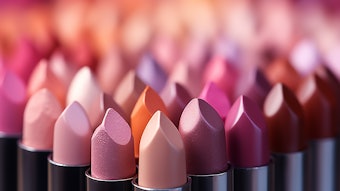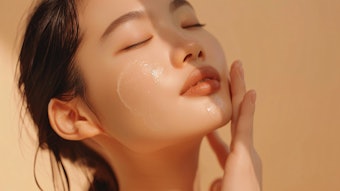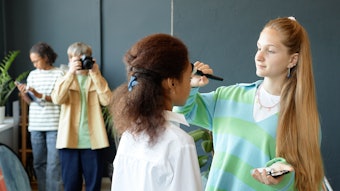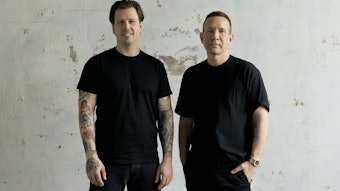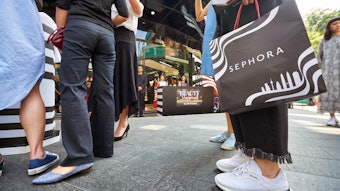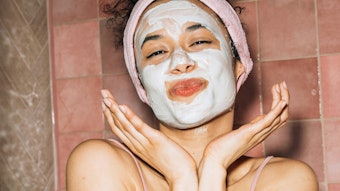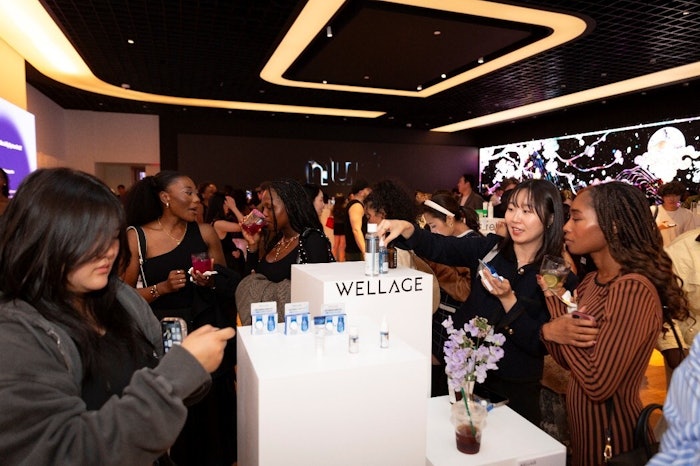
K-beauty had a major boom in 2015-2016, according to Google Trends' tracking of consumer search data, followed by a seconed, even larger spike in early 2024. What's behind the boom? And who's positioned to capture the growth?
North America's K-beauty Market is Valued at $3.8 Billion
According to a new report from Landing, K-beauty's popularity comes down to its "innovative formulations and emphasis on natural ingredients," as well as general affordability, which has made it a favorite of millennials and Gen Z.
"In 2022, it [the global K-beauty market] was valued at approximately $91.99 billion," per Landing, "with North America contributing around $3.8 billion."
Furthermore, the report notes, "The U.S. market is expected to grow significantly, with forecasts predicting it will surpass $9.9 billion by 2032."
The Netflix of K-beauty?
 To capture rising shopper interest, Korea-based Hwahae has launched an English version of its website to make K-beauty more accessible to global shoppers. A Japanese version will also eventually be launched.
To capture rising shopper interest, Korea-based Hwahae has launched an English version of its website to make K-beauty more accessible to global shoppers. A Japanese version will also eventually be launched.
The platform, which seeks to be the Netflix of K-beauty, features consumer reviews, award information, English-language ingredient info and an AI-based recommendation engine.
K-beauty Brands Breaking into the U.S. Beauty Market
 "We are thrilled to partner with Ulta Beauty, a true pioneer in the retail space and the first retailer to boldly launch wellness focused on holistic care", says Yanghee Paik, CEO of Rael.Rael via PR Newswire
"We are thrilled to partner with Ulta Beauty, a true pioneer in the retail space and the first retailer to boldly launch wellness focused on holistic care", says Yanghee Paik, CEO of Rael.Rael via PR Newswire
Notably, Rael, a U.S.-based, Korean-engineered brand featuring "K-Beauty inspired products spanning across skin care, feminine wellness and supplements," launched its 16-SKU beauty line at Ulta Beauty and Ulta.com.
"We are thrilled to partner with Ulta Beauty, a true pioneer in the retail space and the first retailer to boldly launch wellness focused on holistic care", said Yanghee Paik, CEO of Rael. "Ulta Beauty has been at the forefront of introducing innovative technology and trends from K-Beauty to the U.S. market. With our dedicated product development team based in Korea and headquarters in Los Angeles, all Rael skincare products leverage the expertise of K-Beauty technology. Our shared visions and values make this partnership particularly exciting and we can't wait to bring our story to life together."
Korean brands are seeking to break into the U.S. market at an accelerated pace. For instance, Hugel Inc.'s WellAge clinical derma skin care brand joined the New York-based K-beauty Boost festival in 2024.
The event was jointly hosted by the state-run Seoul Business Agency (SBA), online content creators' community, Nurilounge, and Hwahae, all of which seek to promote Korean beauty brands in the North American market.
According to Hwahae, "K-beauty exports to North America set a new record in the first half of 2024, fueling growing demand for information and content on Korean cosmetics."
The company added, "Content creators on TikTok, YouTube, and Instagram have increasingly featured Korean products, with many citing Hwahae as their source of information. As a result, global traffic to Hwahae's Korean website and app has more than doubled year over year."
K-Beauty's US Push is Working
As we reported in May 2024, Spate data illustrates the power of K-beauty in the U.S. market.
The firm's skin care brand rankings based on the speed of monthly online U.S. search increases, dubbed Rising Stars, reflected the spike in interest seen by Google.
Notably, per Spate, "two of the top growth rising stars are Mediheal and Ma:nyo." Both are Korean brands with significant hype.
Mediheal "boasts an average of 22.1K monthly searches and a 410.3% [year-over-year] growth," per Spate
The brand's standout products include its toner pads, reflecting general excitement for the toner sector in the U.S. market. Its chin masks and face masks are also standouts, per Spate.
Ma:nyo, meanwhile, boasts "an average of 6.7K monthly searches and a 296.2% [year-over-year] growth," driven by interest in its cleansing oils, yet another high-interest category enhanced by interest in double cleansing methods.
Notably, per Google Trends data secured separately from the Spate report, Korean skin care is among fastest-growing skin care search topics on Google, as are the Korean brands CosRx, Laneige and Anua.
As this data shows, faith in the power of K-beauty, boosted by general category trends, will keep Korean brands front-of-mind for U.S. consumers.
This points clearly to claims, ingredients and product formats non-Korean brands can tap into for their own marketing and product innovation.

